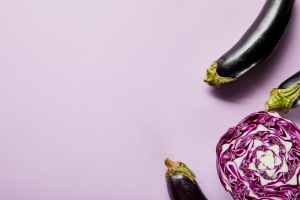
Do Probiotics Help With Anxiety?
Anxiety can appear as a surface-level feeling about a certain unpleasant situation or fear of the future, or it can come in like a tidal

Perhaps you have received a physician’s recommendation to reduce blood sugar, or maybe you have decided to take this important health step on your own. Whatever the reason, the following steps can help get you on the path to healthier blood sugar levels.
A sedentary lifestyle with little to no exercise contributes to high blood sugar because it weakens the cells and muscles that help maintain a good balance. Physical activity increases the ability of muscles to convert blood sugar into energy, so that it does not build up in the blood. In addition, exercise can reduce insulin resistance and therefore aid the substance most responsible for regulating blood sugar in performing its job effectively.
You may try different types of exercise, from walking to weight-lifting, to see what works best for you. Measure your levels with a glucose monitor after exercising to assess what gives you the most reduction. If your job or lifestyle includes long periods of sitting, engaging in light exercise for a few minutes every hour could prove beneficial.
Obesity is another contributing factor to high blood sugar. Eating healthier will lower your weight and limit the damage unhealthy foods are doing to your body. A diabetes diet, for example, often includes the consumption of low-calorie foods. Fruits and vegetables, as well as healthy fats and proteins, are excellent blood sugar balancers.
The aforementioned foods give your body healthy protein and fiber: two key ingredients for controlling blood sugar. Foods high in sodium and refined carbs are especially detrimental to your objectives and should be avoided. The glycemic index is a good tool for measuring how much foods impact blood sugar levels. All meals should be moderate and consistent, with portion control.
Water keeps your kidneys functioning properly, and these organs are an important waste removal system. Excessive sugar is often removed from the body through urination, so healthy kidneys make this process more efficient. In addition, water provides hydration to the blood itself, which in turn helps lower levels of blood sugar.
Keep in mind, however, that natural water is the healthiest means of hydration. While juices and sodas can be of benefit if you are experiencing low blood sugar, they will significantly raise blood glucose levels and are detrimental to your reduction goals.
One of the unseen physical side effects of stress is a potential increase in blood sugar levels. Performing relaxation or meditation exercises and participating in healthy activities that you enjoy can lower stress and, as a result, lower blood sugar.
You should also stay clear of unhealthy habits that facilitate inflammation and blood sugar chaos in your body, such as smoking, excessive drinking, or lack of sleep. If you believe you may have diabetes, heart disease, or other chronic conditions associated with high blood sugar, consult with a medical professional.
Studies increasingly suggest that probiotics can boost your health in many ways. Regarding blood sugar, probiotics can potentially reduce insulin resistance, as well as fasting blood sugar levels as a whole. A long-term probiotic-rich diet can help. High-quality supplements infused with probiotics and other all-natural ingredients can improve the ways our bodies burn sugar as well.
Diet, exercise, hydration, healthy habits, and effective supplements: these five factors can become your roadmap to lower glucose levels and a healthier life. Visit Panacea Scientific and discover the supplements and aid that will help alleviate your blood sugar, metabolic, and weight issues.

Anxiety can appear as a surface-level feeling about a certain unpleasant situation or fear of the future, or it can come in like a tidal

Phytonutrients, otherwise known as phytochemicals, are beneficial compounds found naturally in plants. There are over 25,000 phytochemicals that have been identified in nature. Today, we’re

Healthy lifestyle choices can boost your immune system and protect you from common disease. Are you looking for fresh foods to add to your healthy

Payment types accepted:
Visa/MC/Discover/ American Express
© Copyright Panacea Scientific 2020. All rights reserved. | Website by Infinite Web Designs